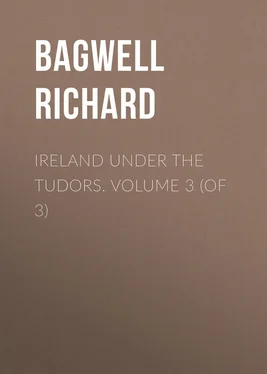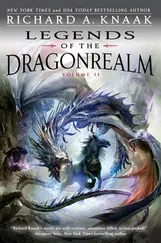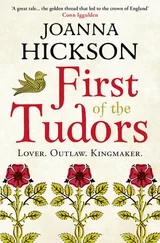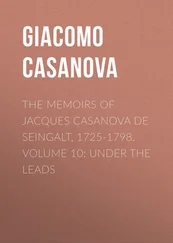Richard Bagwell - Ireland under the Tudors. Volume 3 (of 3)
Здесь есть возможность читать онлайн «Richard Bagwell - Ireland under the Tudors. Volume 3 (of 3)» — ознакомительный отрывок электронной книги совершенно бесплатно, а после прочтения отрывка купить полную версию. В некоторых случаях можно слушать аудио, скачать через торрент в формате fb2 и присутствует краткое содержание. Жанр: foreign_antique, foreign_prose, на английском языке. Описание произведения, (предисловие) а так же отзывы посетителей доступны на портале библиотеки ЛибКат.
- Название:Ireland under the Tudors. Volume 3 (of 3)
- Автор:
- Жанр:
- Год:неизвестен
- ISBN:нет данных
- Рейтинг книги:3 / 5. Голосов: 1
-
Избранное:Добавить в избранное
- Отзывы:
-
Ваша оценка:
- 60
- 1
- 2
- 3
- 4
- 5
Ireland under the Tudors. Volume 3 (of 3): краткое содержание, описание и аннотация
Предлагаем к чтению аннотацию, описание, краткое содержание или предисловие (зависит от того, что написал сам автор книги «Ireland under the Tudors. Volume 3 (of 3)»). Если вы не нашли необходимую информацию о книге — напишите в комментариях, мы постараемся отыскать её.
Ireland under the Tudors. Volume 3 (of 3) — читать онлайн ознакомительный отрывок
Ниже представлен текст книги, разбитый по страницам. Система сохранения места последней прочитанной страницы, позволяет с удобством читать онлайн бесплатно книгу «Ireland under the Tudors. Volume 3 (of 3)», без необходимости каждый раз заново искать на чём Вы остановились. Поставьте закладку, и сможете в любой момент перейти на страницу, на которой закончили чтение.
Интервал:
Закладка:
At Dingle they found the squadron under Winter. Pelham dined on board the admiral, and afterwards went round the fleet, the ‘Swallow’ firing a royal salute when he went ashore. Over 8,000 pounds of biscuit and 10 tuns of beer were sent round to Castlemaine. Dingle was found razed to the ground by John of Desmond, though the merchants’ houses had been ‘very strong and built castle-wise.’ The inhabitants – Bonvilles, Hallys, Scurlocks, Knolts, Sleynys, Angelis, Goldings, Horgetts, Rices, and Trants – hung about their ruined homes, cursing John of Desmond, the Knight of Kerry, and Dr. Sanders, as the root of all their calamities. The ‘Merlin’ was sent to ransack the numerous harbours between Dingle and Cork, and Pelham and Winter scoured the country; on one occasion amusing themselves by robbing an eagle’s nest. The Lord Justice came by chance upon a deserted bakehouse belonging to the Knight of Kerry, and converted a barrel of meal into bread, from the want of which he had suffered much. After exploring both shores of Dingle Bay, even sending light vessels to the Blaskets, lest cattle should be harboured in those sea-beaten islands, Winter and Pelham returned to Castlemaine, and came suddenly upon a vast herd of cows, not less than 4,000 or 5,000, which they drove into their entrenchments, and slaughtered for the use of the fleet. The starving people of the county besought Winter for God’s sake to give them something to eat, and he left them twelve or thirteen cows, a few goats, and 400 sheep, the distribution being entrusted to one MacMorris, a steward of Desmond’s, who had deserted, and from whom some service was expected. The works made for the protection of the prey were then razed, and the fleet sailed for Berehaven. 40 40 Chiefly from Journal of Occurrences, July 2.
Ormonde accompanied Pelham to Dingle and left him taking in provisions from the fleet, while he went to look for James of Desmond in O’Sullivan More’s country. He had to pass round the bottom of Dingle Bay through Clancare’s territory, and that Earl met him and acted as guide. The expedition was not expected, and 1,000 cows were taken; but Ormonde’s followers were closely pursued by O’Sullivan’s sons. Many of the chief’s tenants sided with the strongest, and with their help the cattle were brought away. Beef and water formed the only sustenance of Ormonde’s men, but they did not lag in their work of destruction, and the fires which they raised in Valentia were seen across the bay at Ventry. Pelham returned to Castlemaine, where Ormonde, ‘sore broken in his feet with rocks,’ joined him after a foray of five or six days. He brought with him Clancare, O’Sullivan Bere, and O’Sullivan More, ‘Mac Fynyn of the kerne,’ MacDonogh, O’Keefe, O’Callaghan, MacAuliffe, O’Donoghue More, and all the other chiefs of Desmond except O’Donoghue of Glenflesk, who remained with the traitor earl. The combined forces of Pelham and Ormonde encamped between Pallice and Dunloe by the lower lake of Killarney, ‘the famous lake called Lough Leane.’ Sir N. White notes forty islands, an abbey – Innisfallen – in one, a parish church in another, in a third a castle, ‘out of which came to us a fair lady, the rejected wife of Lord Fitzmaurice, daughter to the late MacCarthy More, eldest brother to this earl.’ Edward Fenton was struck by the beauty of the scene, and interested by the report of large mussels containing pearls; but he was even more struck by Clancare’s castle, ‘called the Palace, a name very unfit for so beggarly a building, not answerable to a mean farmer’s house in England, and his entertainment much like to his dwelling.’ O’Sullivan More’s castle of Dunloe had been razed by Ormonde during his first expedition against James Fitzmaurice. Leaving Killarney, the army explored Glenflesk, which White, with Virgil and Cacus in his mind, calls a ‘famous spelunce.’ But they saw neither men, monsters, nor cattle, and crossed into the upper valley of the Blackwater without any fighting. Near Kanturk Ormonde recovered his heavy baggage which he had left behind on first entering the mountains, and the whole army then marched by Mallow to Cork. The citizens, who were half-starved themselves, were very slow to relieve their wants, but at last agreed to send Pelham 100 l. , to give 100 l. worth of wine on credit, and 100 l. worth of friezes, brogues, and stockings. Many soldiers had broken down for want of bread. They could do anything, White said, ‘if they had but bread, the lack whereof is their only overthrow, and nothing else.’ 41 41 Edw. Fenton to Walsingham, July 11; Ormonde to same, July 21; White M.R. to same, July 22; Pelham to the Privy Council, July 4 and 8 in Carew .
In White’s quaint language, all the lords and chiefs ‘cisalpine and transalpine the mountains of Slieve Logher,’ were present at Cork. Pelham found that nearly as many Barries as Geraldines were in rebellion; but nevertheless Lord Barrymore stood the stiffest on his defence. The rest had very little to say for themselves, and Ormonde bitterly upbraided them, ‘charging himself with their faults for making of Her Majesty to conceive so well of them.’ Desmond, he says, was their ancient scourge and enemy, and as they had favoured him he would cast them off and bid each shift for himself. He would utterly refuse their friendship and spend his blood against them all and against all Her Majesty’s enemies, ‘advising such as loved him to follow his ways, and such as would not bade them defiance, swearing a great oath and clapping his hand upon the Bible, that if Her Majesty did proclaim them traitors with the rest he would lay it on their skins, and in conclusion advised the Lord Justice to carry them all with him to Limerick till better order were taken with them.’ All were received to mercy except Lord Barrymore, who was committed for trial. ‘He is,’ said Ormonde, ‘an arrant Papist, who a long time kept in his house Dr. Tanner, made bishop here by the Pope, who died in my Lord of Upper Ossory’s house, being secretly kept there. Believe me, Mr. Secretary, you shall find my Lord of Upper Ossory as bad a man as may be.’ Pelham took Clancare, Barrymore, and several others with him, and, having been delayed at Mallow by a summer flood in the Blackwater, arrived at Limerick without further adventure. He professed himself fairly satisfied with the progress made. Frequent inroads, and still more the steady pressure of the garrisons, would soon starve out the rebels, unless help came from abroad. In that case, he said, ‘I look their strength will be infinitely multiplied.’ 42 42 White M.R. to the Privy Council, July 22, 1580, where Ormonde’s speech is given; Ormonde to Walsingham, July 21; Pelham and his Council to the Privy Council, July 9 and 12, in Carew .
As if to fill the time till the Spaniards came, a movement now began which defeated Pelham’s calculations. The new rebel was James Eustace, who had lately succeeded his father as Viscount Baltinglas, and who was an enthusiastic Catholic. He was already connected with the turbulent O’Byrnes, and his father had been in opposition on the cess question; but it is clear that religion was the chief motive. Before he succeeded to the title, Sanders and others persuaded him to go to Rome, and what he saw there under Gregory XIII. had exactly a contrary effect on him to what the Rome of Leo X. had upon Luther. On his return he heard mass, boldly gloried in the fact before the Ecclesiastical Commission, and was mulcted in the statutable fine of 100 marks, Sidney quaintly declaring that he could not countenance ‘Papistry and abolished religion.’ Loftus was told to exact the money or a bond, and to imprison in default. The young lord went to gaol for twenty-four hours, and was pardoned on signing the bond. But fine and imprisonment never convince, though they sometimes silence, and Baltinglas was in no way changed by what courtly officials called her Majesty’s godly proceedings. ‘I mean,’ he wrote to a Waterford merchant, ‘to take this holy enterprise in hand by the authority of the Supreme Head of the Church.’
Читать дальшеИнтервал:
Закладка:
Похожие книги на «Ireland under the Tudors. Volume 3 (of 3)»
Представляем Вашему вниманию похожие книги на «Ireland under the Tudors. Volume 3 (of 3)» списком для выбора. Мы отобрали схожую по названию и смыслу литературу в надежде предоставить читателям больше вариантов отыскать новые, интересные, ещё непрочитанные произведения.
Обсуждение, отзывы о книге «Ireland under the Tudors. Volume 3 (of 3)» и просто собственные мнения читателей. Оставьте ваши комментарии, напишите, что Вы думаете о произведении, его смысле или главных героях. Укажите что конкретно понравилось, а что нет, и почему Вы так считаете.












